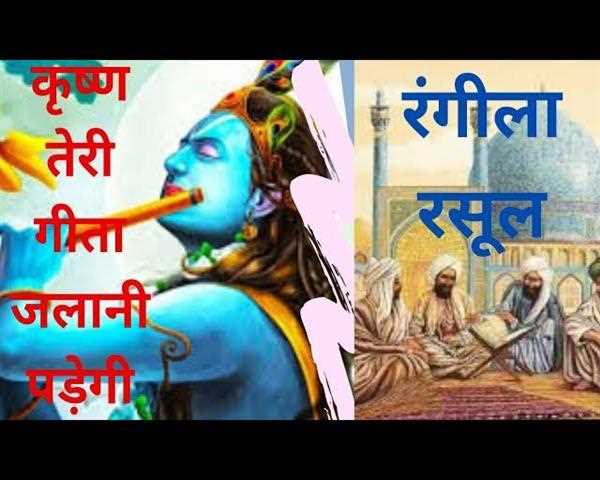Even today, the Rangeela Rasool controversy and Gandhi's role in it remain a matter of hot debate and discussion. The controversy erupted in 1922 when a pamphlet was circulated in India stating that a certain book called Rangeela Rasool, which purported to be an account of the Prophet Muhammad, was written in Hindi by a Muslim man called Rafiuddin.
The book by Rangeela Rasool discusses Prophet Muhammad's marriages and his propensity to take wives. Rangila Rasul was a satire, but on the surface, it appeared to be a lyrical and laudatory work on Muhammad and his teachings. However, the prophet's marital life is treated in a praising tone, in the style of bhakti, which is a display of devotion to a god or saint in the Hindu tradition. Some of the book's contentious points are also true to what the Islamic tradition says about Muhammad's life. Due to the author's familiarity with Islamic literature, this occurred.
The pamphlet caused an uproar in both the Hindu and Muslim communities. Hindus considered the book blasphemous, while Muslims felt it insulted their faith. The controversy became so severe that Gandhi, who was then the leader of the Indian National Congress, was forced to intervene and try to resolve the matter. Mahatma Gandhi mentioned Rangila Rasul in his weekly Young India column in June 1924.

Gandhi saw the Rangeela Rasool controversy as an opportunity to unite the two communities. He proposed that both communities come together and agree to accept the book and its contents. He argued that, although the book may have hurt the sentiments of some, it should not be taken as an insult to the faith of either community.
Gandhi was successful in his efforts, and after much discussion and debate, both communities finally accepted the book. However, the controversy did not end there, as both communities disagreed over certain aspects of the book.
This controversy is an important reminder of Gandhi's commitment to communal harmony and religious tolerance. He was a strong advocate for the rights of all communities, and his efforts in resolving the Rangeela Rasool controversy demonstrate his belief in the importance of peaceful coexistence between different faiths.
Today, the Rangeela Rasool controversy remains a reminder of how important it is to maintain religious harmony and respect for all faiths. Gandhi's role in the controversy should serve as an example to us all, and his message of peaceful coexistence should remain an inspiration for generations to come.